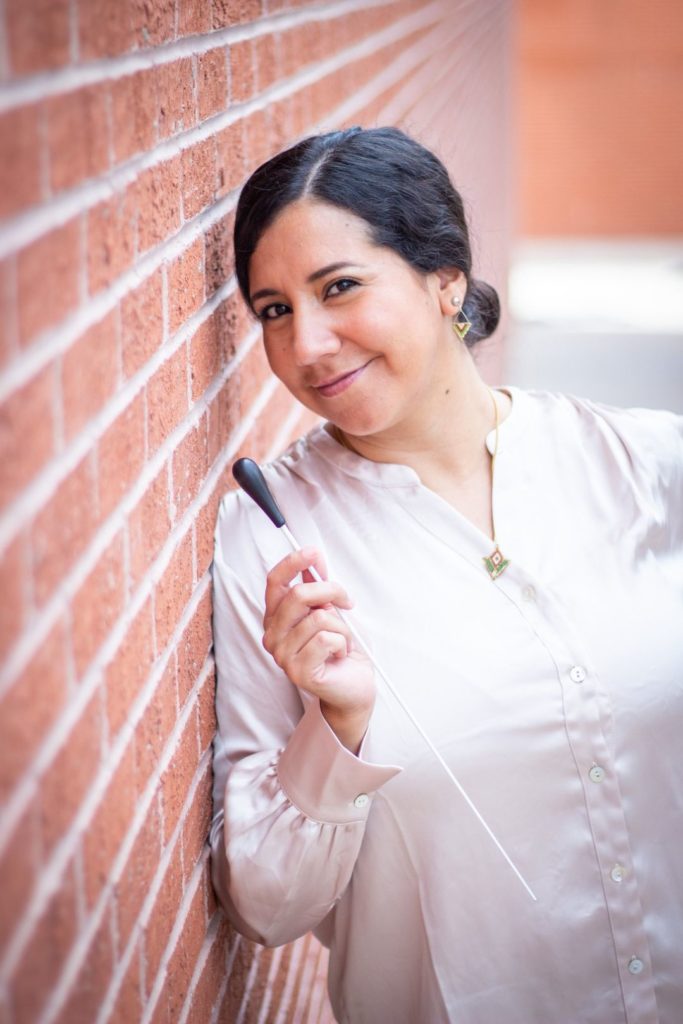Fátima Corona del Toro grew up in Tepic, Mexico—a small town where there wasn’t much to do until her parents asked Fátima and her sisters if they’d like to join a music school, to which they said, “Why not?”
Each sister auditioned, and each was paired with a different instrument. Fátima’s two older sisters would play the viola, and the cello, and Fátima would play the violin.

“The violin chose me. I didn’t choose the violin,” says Fátima. “I remember my first encounter with the instrument—it was great. I don’t know. Something changed. It’s hard to explain.”
Fátima was eight years old when she started playing violin, and she was the only one of her sisters who would go on to pursue music. At age 13, she was offered an opportunity to join the National Youth Orchestra of Mexico. As part of the orchestra, she had a chance to play in the Palacio de Bellas Artes, the main theater in Mexico, and she spent her summers touring the country and playing music. By the time she graduated high school, Fátima knew she wanted to be a professional violin player, so she moved to Ensenada where she earned an undergraduate degree in violin. After graduation, she was invited to join a program called Esperanza Azteca Nayarit in her hometown, as a violin teacher, but then her career took a different turn.
>> University Fellows: Arts students join 2021-2022 cohort
>> University Fellows: Anupam Singh’s socially engaged art
>> Graduate Center | Fred Fox School of Music

The Power to Choose
The program was missing a conductor. Two or three people were already fighting for the position, but Fátima had taken some conducting courses in college and wanted to try her hand at it. After several months of auditions, Fátima was awarded the position.
“So conducting also chose me.”
To repay the favor, Fátima also chose conducting. She left her hometown to conduct a newly-formed orchestra.
“But then I realized that I have a very little experience at the conducting podium. So I quit everything to pursue conducting.”
A friend invited Fátima to join a catholic university in the U.S., and—with some financial help from Esperanza Azteca Nayarit—she attended the program for two years, and then completed another two years in Michigan. When I asked her what made conducting special enough to chase across two countries and two different schools, she had this to say:
“The position of a conductor is a privilege. It’s a privilege to have the power to choose the music, because through music you can make changes.”
And a conductor’s work goes far beyond choosing the music and keeping the beat. Conductors play the live instrument that is the orchestra, each string of which is another artist, managing their own feelings and emotions and trying to perform to the best of their ability. But whereas a violin player could adjust an instrument with the turn of a peg, an instructor has to manage players’ emotions and belief in the music using nothing but body language.
Fátima’s path has now brought her to the University of Arizona, where she is pursuing a Ph.D. in Orchestral Conducting. She’s also a member of the University Fellows Program.
“I am very excited, not just about the scholarship but the cultural diversity. Like I said, I come from a very small town, and now I’m working with people from all over the world. So the Fellows Program means the world to me.”
Originally published on the Graduate Center’s website on Oct. 12, 2022. Republished with permission. Read the original story here.
